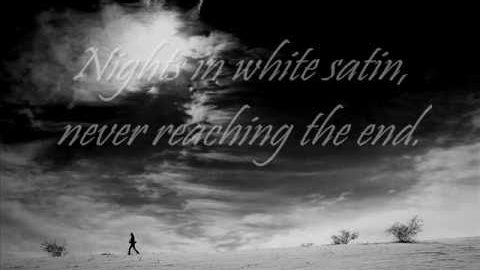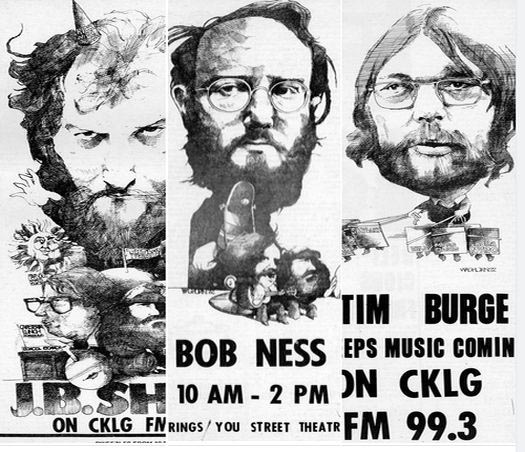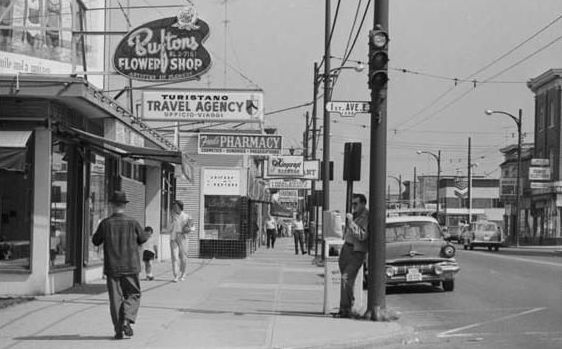
Growing up in Grandview-Woodland in the 1950s and 1960s as a poverty-ridden, slum dwelling east side kid, getting into fights was almost a daily feature of my young life, as it was for most of my peers.
As bad as I often had it, though, life for my mother was often much worse.
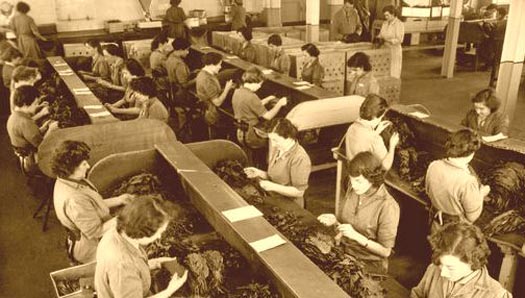
Working for 35¢ an hour at one back breaking job after another, subject to the whims and the unwanted attentions of her male bosses, sexual assault was as much a feature in my mother’s life as fighting was in mine.
And my working class mother was as tough as they come, let me tell you.
Still, seeing what my mother had to endure every day, early on turned me into a feminist, and a staunch, lifelong defender of women, central to the way I’ve brought myself to the world, from as far back as I can remember.
When I met Cathy in the late ’60s, a big part of her attraction to me was as a bad boy, a wiry, never say die street fighter who could defend her interests and integrity when the occasion arose — which became a regular occurrence in the first half dozen years we were together.
Then the 1970s happened, the era of women’s consciousness-raising groups, and marching on picket lines to defend the interests of women exploited by their bosses at their place of employment — including up at Simon Fraser University, where men filled all of the senior administrative positions at the university, with women relegated to performing the work that needed to get done, although ill-paid for their endeavours, unrecognized, and denied always the opportunity for advancement.
Let us not forget, all of the above occurred less than fifty short years ago.
By the time the 1970s ended, every man of my acquaintance identified himself as a feminist, and a staunch ally of women. We learned to cook and participated with our partners in preparing meals, sharing household duties, and were as much involved with child raising as were our female partners.
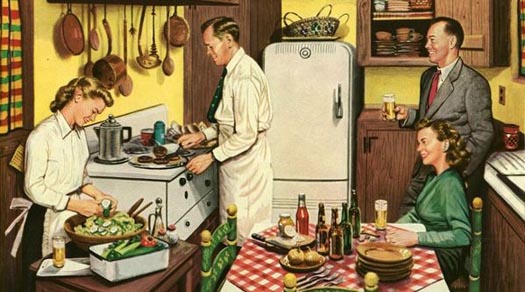
Then the 1980s came along, and many changes were wrought.
The women in the lives of these “liberated” men to whom I’d been close for a decade and more turned to us, one by one, expressing how dissatisfied they were with the progressive, supportive, domesticated men we had become — each woman leaving her marriage, to take up with what we had once been: sexist, thoughtless men who would never dream of preparing a meal, taking care of our children, or “helping out around the house.”
To say that my male friends and I were flabbergasted, taken aback at the state of affairs described above would be an understatement.
We thought we’d become everything our wives had needed us to be: loving, supportive men who were gentle of spirit and presentation to the world, breadwinners as well, but equal participants in every aspect of our lives at home, the growing of organic foods in the garden, vacuuming and washing the floors on weekends, doing the laundry and ironing, child raising, all in addition to the more “manly chores” involving carpentry, electrical work, yard work, and anything that approached some degree of hard labour.
Yet, here we were: our marriages ended, our wives remarried to (or in a relationship with) a Cro-Magnon “thug”, while we were left paying alimony and maintenance through the nose, and were more often than not denied anything approaching reasonable access to our children. As a group we weren’t angry, just confused at this unforeseeable turn our lives had taken.
Every Friday evening, a bunch of us would get together at Scott Parker’s house in Burnaby, at the corner of Frances and Gilmore. We’d drink, listen to music, head out to a concert if one was happening, and kvetch about our undeserved fate. Perhaps not the most productive use of our time, hardly a ‘manly’ activity, but for a time it met our collective need for context.
Once, when high as a kite, one of the men gathered at Scott’s house suggested we constitute ourselves as the Disgusting Men’s Group, or the DMG. As plastered as we all were, individually and collectively we immediately cottoned on to the idea, adopting the DMG moniker for our regular Friday night get-togethers. In passing, it must said, once we became the DMG, our progressive politics went out the window for the few short hours we met each Friday night — at all other times, it was back to being the progressive feminist men we all had long known ourselves to be.
The member of the DMG who came up with the group’s name went so far as to draft a wildly provocative and overtly sexist DMG Manifesto, which — without informing any of the men in the DMG — he printed and distributed all across town. The response was immediate: every feminist woman in British Columbia hated us, each member was condemned, as to a man we became despised, detested, execrable, and scorned. Affairs reached such a fever pitch, that the man who drafted the Manifesto had to return to his home in Ireland, fearful for his personal safety, and the potential for harm.
In short order, members of the now disbanded Disgusting Men’s Group, were not only shunned, but became targets by our distaff comrades for horrendous abuse, not just verbal but often physical — affecting our employment, our access to our children, our standing in the community and any potential for a relationship with any woman on the Lower Mainland who considered herself to be a feminist, and a supporter of women’s causes.
In my case, when the then Ministry of Human Resources became involved in a child custody dispute between Cathy and I, when she removed my two children from the jurisdiction (read: kidnapped) upon her return, both of our children were placed in the care of the province, rather than returned to me, the custodial parent. The apprehending social worker — who I knew from left groups I’d worked with for years — hated me arising from her reading of the manifesto, the drafting / distribution of which I’d had no role.
Nonetheless, for two long, seemingly endless and miserable years, the social worker made my life a living hell, arbitrarily withholding access to my children — who didn’t know what the hell was going on, why they’d been wrenched away from their father — and otherwise engaging in court-related activity that, as the documents she submitted to the courts required a response, came to cost me a small fortune, in the many tens of thousands of dollars. When the courts appointed a mediator to assess the parenting skills of the respective warring partners – that would be Cathy and I – a feminist psychiatrist was appointed to conduct the mediation activity.
In 1983, working together, the social worker and the psychiatrist submitted a devastating report to the Supreme Court, alleging I was a combination Franco / Hitler / Mussolini / Pinochet / Stalinist provocateur, and an utterly despicable man, who not only should never see his children ever again, but to the benefit of all, must be removed from society as I posed a threat and a danger to good, innocent and well-intentioned citizens everywhere.
At the Court hearing where the Supreme Court Justice was to render a verdict on the report and my continued access to my children, the Justice became so enraged with the contents of the document that the social worker and psychiatrist had submitted to the Court, he picked up the report and flung it across the room, into the area in front of the table where the psychiatrist and the social worker sat, stating, “In all my years on the bench, I have never read as biased a report as has been submitted to this Court, a garbage report that this Court utterly rejects.” Turning to the plaintiff table, the Justice castigated the social worker & the psychiatrist, removing the social worker from the case for “bias”, and telling the psychiatrist she ought to be ashamed of herself, that arising from her report that the Court would submit her name to the College of Physicians and Surgeons for a review of her “damnable practice of medicine.”
In addition, the Justice removed the jurisdiction of the Ministry of Human Resources from involvement in the case, ordered that a Court-appointed mediator be assigned to the case — who, as time passed, did everything in her power to bring reason and justice to a case where such had been absent the previous two years — ordering, as well, that regular access to my two children be re-established sans supervision and, further, that I be afforded the opportunity to re-establish my relationship with my two children, to see and spend time with them during the week, to have them stay with me on weekends, on holidays, and for a month in the summer.
That the misery of access to my two children continued on for another five long, arduous, painful and expensive years, as Cathy took me to Court multiple times a year through 1988, is a story (or not) for another day.





